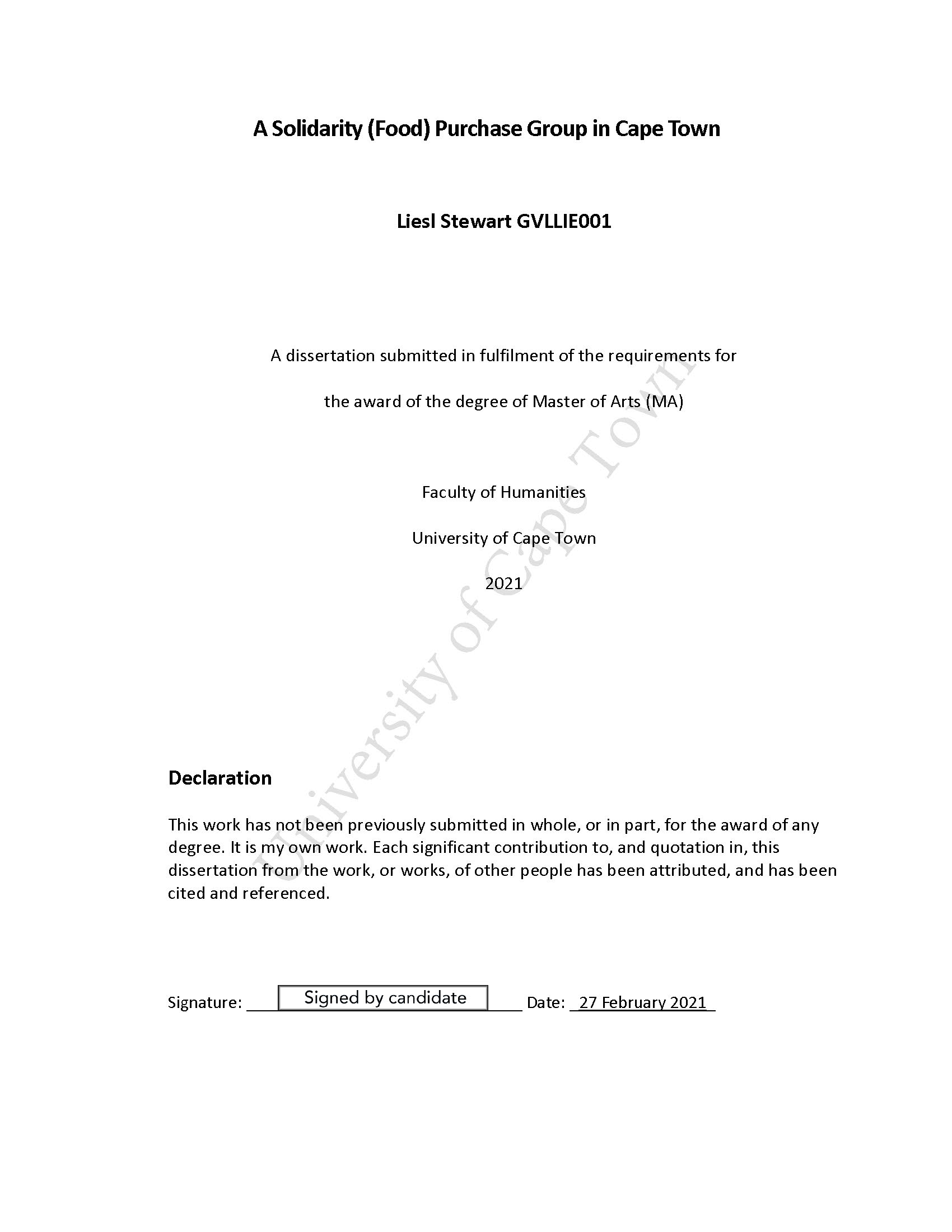– Master Thesis –
For the past thirty years, food producers and consumers have initiated alternative food networks (AFNs) because of the perception that the globalising agrifood system is unsustainable, untrustworthy, and untransparent. These alternative strategies for food production and distribution are perceived to be rooted in sustainable, socially-embedded principles. In more recent years, solidarity purchase groups (SPGs) have formed as a distinct type of AFN collaboration that facilitates higher levels of relationships of regard and reciprocity between consumers and producers. The literature of AFNs has largely focussed on AFNs in the global North. There has been far less research focussed on the nature of AFNs in the global South. This research project was undertaken to write a history of an SPG in the global South, in Cape Town, South Africa: The Good Food Club (GFC). The development of the GFC was examined within the context of the global literature on AFNs. Key actors in the GFC, suppliers and members, were interviewed to describe their participation and to discuss the motivations driving their involvement in the GFC. The research explored their values around food production and distribution, and the ways their values have developed or changed over the time of their GFC involvement. Through increased exposure to the food system realities, members have grown in their consciousness as consumers. Members and suppliers expressed desire for connection with each other, for increased embodied knowledge. Members do not believe they will find this this knowledge and connection in the country’s corporate retailers. Finally, this research comments the GFC developing similarly to AFNs of the global North, and its consequent limitations as a strategy for the common good of Cape Town.

